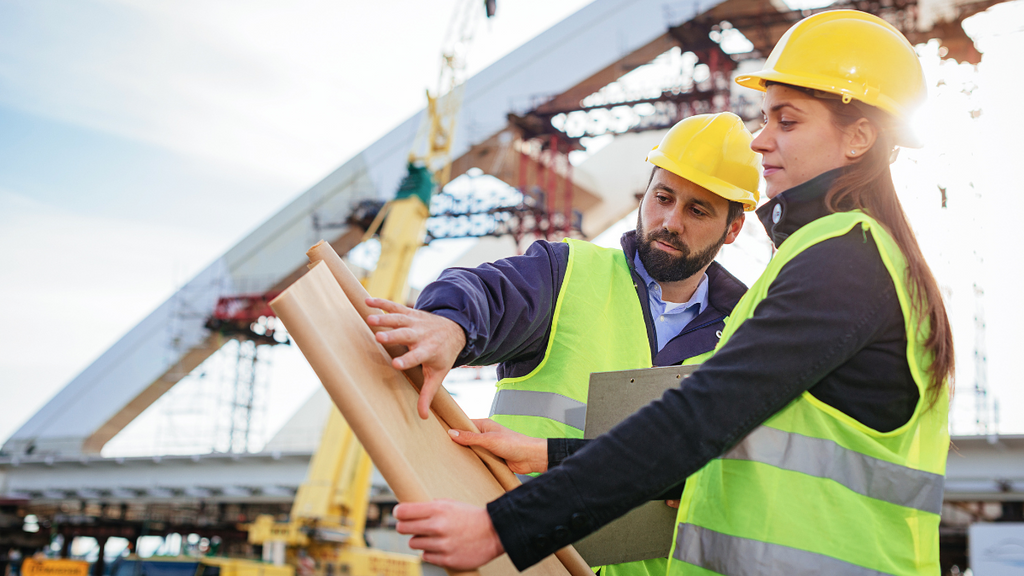Geotheta Can Be Fun For Everyone
Geotheta Can Be Fun For Everyone
Blog Article
Not known Incorrect Statements About Geotheta
Table of ContentsThe Ultimate Guide To GeothetaEverything about GeothetaFacts About Geotheta UncoveredAn Unbiased View of GeothetaGet This Report on Geotheta

They carry out site examinations, accumulate samples, execute lab tests, and analyze data to examine the suitability of the ground for building and construction tasks - Geotechnical Engineers. Based on their findings, geotechnical designers give recommendations for foundation style, incline stability, preserving structures, and reduction of geotechnical risks. They team up with other professionals, such as architects, architectural designers, and building and construction teams, to ensure that geotechnical considerations are integrated into the general task style and application
By assessing the actions and homes of soil and rock, they can determine prospective geotechnical threats such as landslides, dirt negotiation, or incline instability. Their experience aids protect against failures or accidents that can endanger lives and home. Right here are some comprehensive responsibilities and obligations of a geotechnical engineer: Site Examination: Geotechnical engineers conduct site examinations to gather information on subsurface conditions.
They interpret the data to comprehend the properties and behavior of the soil and rock, including their strength, permeability, compaction qualities, and groundwater conditions. Geotechnical Evaluation and Style: Geotechnical designers assess the information collected throughout website examinations to analyze the security and suitability of the site for construction jobs. They do geotechnical estimations and modeling to examine aspects such as bearing capability, settlement, slope stability, lateral earth pressures, and groundwater flow.
The Basic Principles Of Geotheta
Foundation Layout: Geotechnical designers play a crucial role in designing foundations that can securely support the desired structure. They assess the soil problems and load demands to identify the ideal structure type, such as superficial structures (e.g., footings), deep structures (e.g (http://go.bubbl.us/e3adfd/a28b?/Geotheta)., stacks), or specialized methods like dirt renovation. They take into consideration aspects such as settlement restrictions, bearing capability, and soil-structure interaction to create optimal structure layouts
They examine building strategies, screen site activities, and carry out field evaluations to confirm that the design referrals are complied with. If unexpected geotechnical concerns develop, they evaluate the situation and provide referrals for removal or modifications to the design. Danger Assessment and Reduction: Geotechnical engineers assess geotechnical dangers and dangers related to the task site, such as landslides, liquefaction, or dirt erosion.

Cooperation and Communication: Geotechnical designers work closely with other professionals associated with a job, such as engineers, structural engineers, and building and construction teams. Reliable interaction and cooperation are necessary to incorporate geotechnical factors to consider into the general project style and building procedure. Geotechnical engineers offer technological expertise, response inquiries, and guarantee that geotechnical requirements are satisfied.
Geotheta for Beginners
Below are some sorts of geotechnical engineers: Foundation Designer: Foundation designers concentrate on designing and click to find out more assessing foundations for structures. They evaluate the dirt problems, load needs, and website characteristics to determine the most suitable foundation type and design, such as shallow structures, deep structures, or specialized techniques like pile foundations.
They assess the elements influencing slope stability, such as soil buildings, groundwater problems, and slope geometry, and establish methods to stop slope failures and reduce threats. Quake Engineer: Quake designers concentrate on assessing and making frameworks to endure seismic pressures. They evaluate the seismic danger of a website, examine dirt liquefaction possibility, and establish seismic design criteria to ensure the safety and security and durability of structures throughout quakes.
They do field testing, accumulate examples, and evaluate the collected data to define the dirt residential or commercial properties, geologic developments, and groundwater problems at a website. Geotechnical Instrumentation Engineer: Geotechnical instrumentation engineers concentrate on tracking and gauging the actions of soil, rock, and frameworks. They mount and preserve instrumentation systems that monitor factors such as dirt settlement, groundwater degrees, slope movements, and architectural displacements to evaluate performance and supply early warnings of possible problems.
Excitement About Geotheta
They conduct examinations such as triaxial tests, consolidation examinations, straight shear examinations, and permeability examinations to collect information for geotechnical analysis and style. Geosynthetics Designer: Geosynthetics designers focus on the style and application of geosynthetic products, such as geotextiles, geogrids, and geomembranes. They make use of these materials to enhance dirt stability, strengthen inclines, offer drain remedies, and control erosion.
They have a tendency to be investigatory people, which indicates they're intellectual, reflective, and investigative. They are interested, systematic, reasonable, logical, and rational. Some of them are likewise social, indicating they're kind, generous, participating, patient, caring, practical, understanding, sensible, and pleasant - Consulting Engineers.
In the workplace setting, geotechnical designers utilize specialized software program tools to perform estimations, develop designs, and assess information. They prepare reports, evaluation project specs, communicate with customers and group participants, and coordinate job activities. The office setup gives a favorable environment for study, evaluation, and collaboration with other specialists involved in the task.
The Facts About Geotheta Revealed
They often visit job websites to conduct site investigations, examine geotechnical conditions, and collect information for analysis. These check outs entail traveling to different locations, sometimes in remote or difficult surfaces. Geotechnical designers may carry out soil sampling, conduct tests, and display building tasks to guarantee that the geotechnical facets of the project are being carried out appropriately.
Geotechnical designers likewise function in specialized geotechnical laboratories. Geotechnical research laboratory engineers work extensively in these environments, taking care of testing devices, operating tools, and recording information.
Report this page